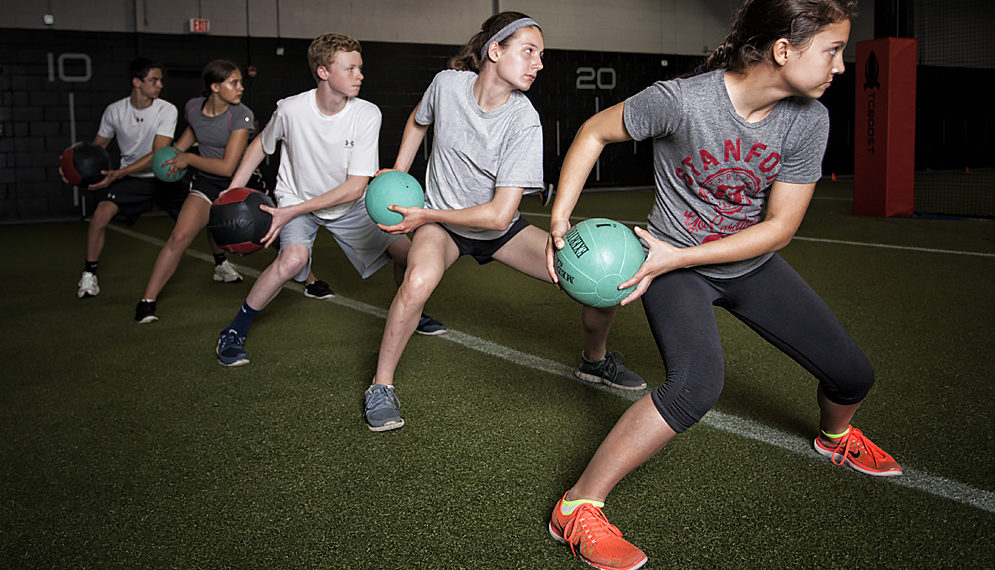The positive effects of getting children engaged and enjoying physical activity include improving fitness, providing an opportunity to socialise, increasing concentration, academic scores and brain function, building a stronger heart, bones and healthier muscles, as well as improving self-esteem, posture, balance and lowering stress. However, it is important that early specialization is avoided by providing and encouraging all sports to be pursued and tried, which encompass the development of a diverse range of movements and motor skills. For example, different ball sports, striking sports (tennis, golf, cricket), water sports, performing arts (dance, gymnastics, calisthenics), individual and team based sports.
Speaking to your child about what they want to do and how they feel towards different types of physical activity will go a long way in keeping on top of their welfare. As well as keeping them engaged in sport. Regular monitoring of growth, load and wellness may be useful to identify periods of intense physical and emotional stress. These results over time can then be used to shape training. For example, if the athletes have a heavy school block, a cognitive task (gymnastics, striking sports) may not be helpful for them, whereas an aerobic based session, gym based session or game such as volleyball may allow the athlete to “switch off” mentally and recover faster.
Not only can playing a variety of sports help keep on top of your child’s mental health, but it can help keep on top of their physical health as well. Naturally, different sports, have different physical needs (ability to accelerate, move laterally, jump high, run a long distance), this results in athletic profiling that is very skewed towards the demands of one sport. Leaving your child susceptible to injury that one time per game when they need to perform a movement they are not used to. By exposing your child to a wide range of sports, it gets the body used to a large range of movements leaving no clear chink in the armor.
Furthermore, children that play many different sports are able to take little bits and pieces they learn from one sport and are able to apply it to others. For example, commentators often describe how AFL players with a basketball background seem to have a lot more time to make a decision with the ball and are more relaxed under extreme defensive pressure then those who were not brought up with a basketball background. This is believed to be because basketball is played in such a confined space that there is always someone in your face so you get better at making decisions under pressure. The ability to transfer skills from one discipline to another, whether in sport or life, can not be underestimated, it gives you an advantage over everyone else, making you more valuable and gives the team a different perspective.
The more your children enjoy the physical activity they do, and the more they diversify at a young age. The more likely they are to find something they enjoy, continue to be physically active well into adulthood and be good at their chosen sport.
